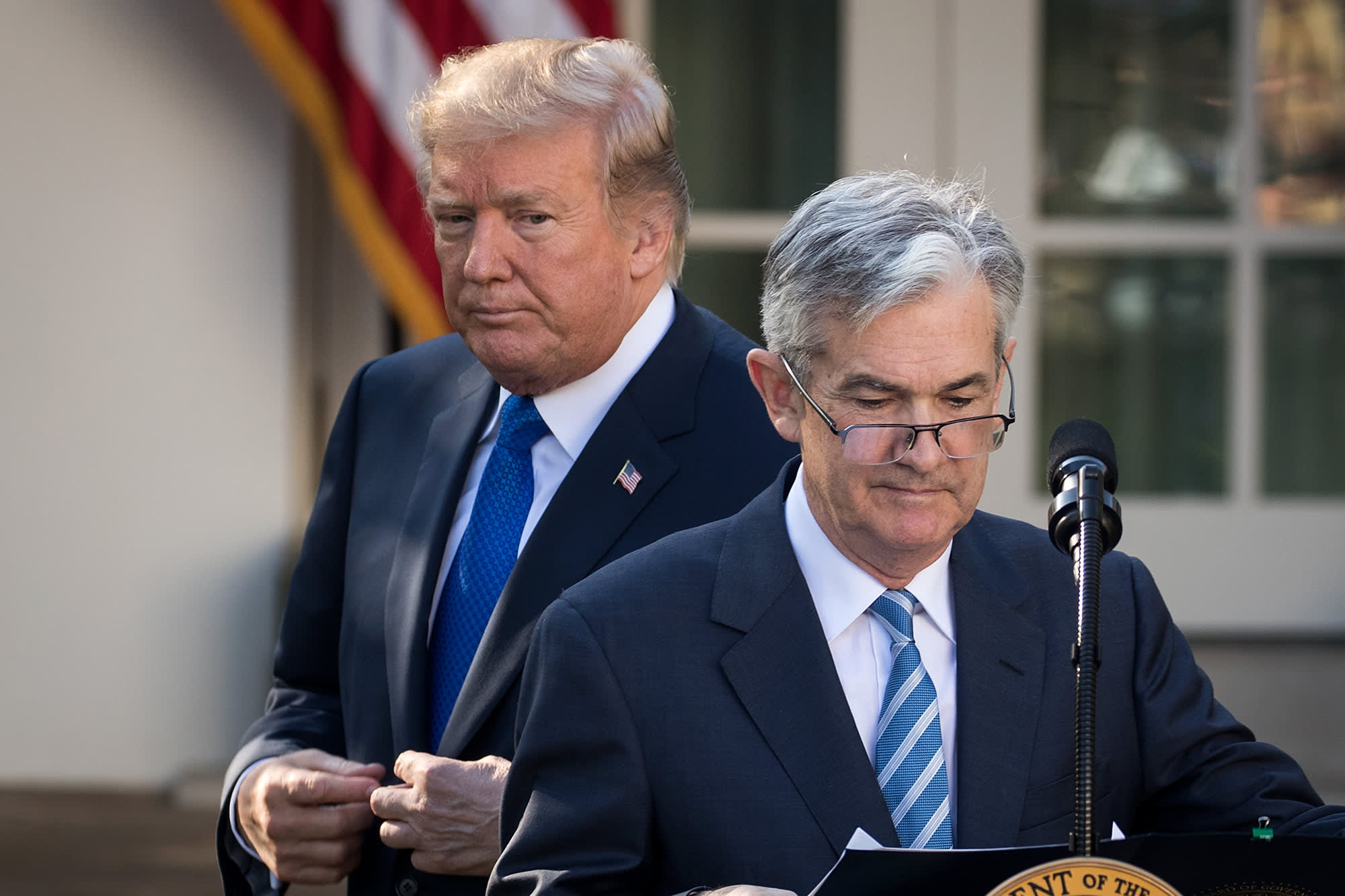President Donald Trump has now politicized the Federal Reserve's decision-making process to such an extent that former Fed Chair Janet Yellen felt compelled, or was asked, to support the Fed's decision to cut short-term interest rates by a quarter point.
While some called Yellen's comments unprecedented by a recent Fed chief, still more unusual is the president's constant criticism of the Fed itself.
And the president continued his criticism in the wake of the decision to not only cut rates but also bring an earlier end to the Fed's much-hated (by DJT) policy known as "Quantitative Tightening!"
Clearly, Yellen is providing economic cover for the Fed's rate cut against a backdrop of ever-increasing political pressures, threats and jawboning by a sitting president.
The Fed did exactly the right thing Wednesday: It executed a midcycle correction of interest rate policy to extend the length of a historic economic recovery, vaccinated the U.S. economies from overseas ills, and attempted to push inflation up high enough, though not too high, to ensure that in the next recession doesn't fall into an inflation trap.
Job well done. The way in which it was communicated? Not so much.
Hence, the slide on Wall Street and the renewed, and completely unwarranted, attacks from the White House.
Save some ammunition
While I agree that the Fed was right to take back its December rate hike, the final hike might have been unnecessary, demanding the Fed do more than that is wrong at this point in the economic cycle, given the relative strength of the U.S. economy, the absolute level of employment, consumer confidence, GDP growth and inflation.
None of the domestic data suggests that emergency measures are called for here. The Fed should save some ammunition should external shocks demand a substantial and immediate reaction.
Not surprisingly, the risk of an external shock comes from inside the U.S. as the president threatened to get even tougher with China in an already difficult trade dispute.
In fact, there is no disputing that Trump's tariff war has slowed global manufacturing to near contraction.
Indeed, any further steps could risk not just a global recession, but a series of retaliatory steps by the Chinese, like a massive currency devaluation that could send shock waves around the world.
With a record $13.7 trillion in overseas sovereign debt carrying negative interest rates, there is scant room for the world to do more to stimulate a global economy further weakened by an intensifying trade war … save for further, beggar-thy-neighbor, competitive, currency devaluations.
Recent reports suggest the Swiss are looking to devalue their franc, while the British pound has hit a 34-year low against the dollar amid deepening Brexit concerns.
The Fed is likely taking the right step to ease credit conditions in the U.S. a bit, pending further review of not only incoming data but also further developments on trade, tariffs and the untethering of Britain from the European Union before taking any additional steps.
Trump hurting global economy
While the president continues to express disappointment in the Federal Reserve, he should be more disappointed in his own policies.
Not only are they failing to bring China back to the negotiating table, but they are also threatening to destabilize the global and domestic economies.
Then, the Fed will be forced to employ emergency measures again, this time with no guarantee that they will ward off, or even lessen, a recession that comes with inflation at such low ebb.
Trump can't tout the strongest economy in U.S. history (it's not, by the way — average growth rates in the 1990s and in other periods were considerably stronger) and then blame the Fed for keeping policy too tight.
Packing the Fed
Trump is also attempting to pack the Fed by nominating two more individuals who would rather do his bidding by driving down rates than to do what's right for the economy.
One of his nominees, Judy Shelton, said to be a possible replacement for Chairman Powell, has voiced similar criticisms.
Oddly, Shelton, an advocate of the gold standard, or some hard currency standard, also wants to push interest rates back to zero.
This is economic cognitive dissonance gone wild.
More worrisome than any global shock is a Federal Reserve stocked with officials whose ideas are not only discordant but also dangerous.
If the U.S. economy should fall into recession, it won't lay at the feet of the Fed chairman, but at those of the president and his minions, all of whom are working in the interest of a sole citizen instead of for us.


